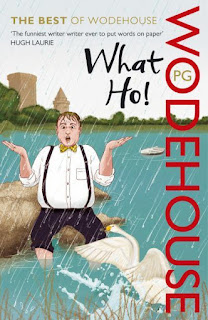In most cases the influence comes from what your parents and peers have watched on TV, heard on the radio or read in books.
In other, admittedly strange, cases it comes from the pages of Shoot! magazine.
The premier football magazine of the 70s and 80s was a regular through my letterbox. And in amongst all the stories of Mickey Droy being suspended for 3 games, Trevor Francis snapping his achilles tendon and Steve Daley not being the player that Malcolm Allison really wanted to spend £1.45 million on, was the page when a top player was aked a series of searching questions (Car you drive, favourite food, best goal scored, that sort of investigative journalism that gets to the heart of the personality involved).
In a peculiar, un-explainable piece of remembered trivia, Graham Rix answered the question 'favourite book' with: Monty Python's Big Red Book.
I'd heard of Monty Python, but being about 10, and incredibly confused by everything, I thought Monty Python was an actual person. In fact, I thought it was the altar-ego/stage name of John Cleese (oh, how stupid was I?).
Coincidence is a funny thing - about a month or so after reading this I found a copy of the Big Red Book at a Scout Jumble Sale. The first thing that confused me was it was actually blue.
Anyway, I spent my 20p - and there began a Monty Python infatuation that continues to this day.
'All roads lead to Python' - and they usually do. Any conversation can easily (or by the application of some convuluted logic) end up at the words of the Pythons.
OK, I'll admit that not all the original TV shows stand up today, but there is usually at lease one or two flashes of comedy genius in amongst the forgotten punchlines, silly voices, and sometime surreal animations.
When they are good, they're very good. When they're bad, they're still amusing.
The films on the other hand are always watchable, eminently quotable, and possibly some of the funniest things ever committed to celluloid (and yes, I am including The Meaning Of Life).
To check if there are other Python fans around, all you need to do is say: "Mais, ou sont la baggage?", and just check the response you get (probably, it'll be mostly confused looking people with that "ignore the nutter, he might go away" look on their faces).
The answer is this:
The book of the TV show scripts. Volume 2 is also available covering the remaining shows from where Volume 1 finishes (as it would do really).
But a man cannot live by Python alone.
Other books which were instrumental in developing a skewed look at the world were:
And now my funny bone is being further tickled by possibly the funniest writer to ever put pen to paper:
P G Wodehouse. My introduction to Wodehouse came with this compendium/compilation of short stories and excerpts from the novels of Blandings, Jeeves, The Drones, Psmith and Ukridge.
Stories from a world that no longer exists (or perhaps never did), a place where the absurd becomes the normal. If you like to be gently amused by the power of the written word, and you've never read Wodehouse, do yourself a favour and seek out a copy of the above. I doubt you'll be disappointed.
I'll leave you with just one question:
Is this the right room for an argument?




No comments:
Post a Comment